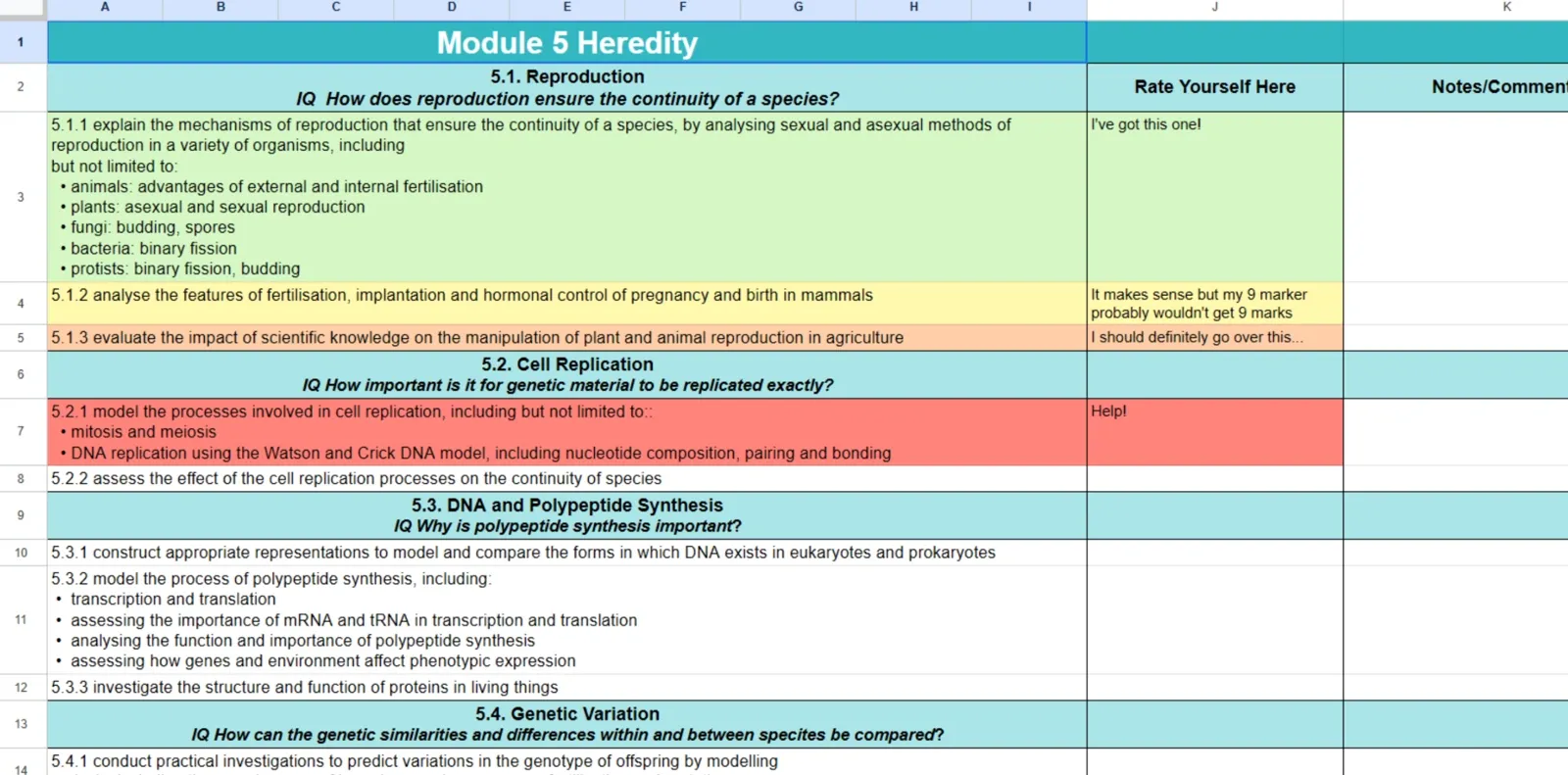Firstly, what ARE trials?
These exams are essentially a big dress rehearsal before the big show. Its purpose is to simulate the external exams that you’ll sit in October-November, ultimately acting as a trial run (hence the name). Yes, they can feel overwhelming. But no, it’s not the end of the world.
We interviewed a few of our high-performing tutors to get their two cents on how to prep for trials. So, here are some strategies to help study smart (not just hard), manage stress, and ultimately smash your exams!



Be intentional with your time
There are limited hours in the day, so efficiency is KEY. You should be prioritising study tactics that will noticeably move the needle.
Start off by carefully planning the next few weeks. Consider these questions:
- How many hours will you dedicate to studying for trials per week?
- How is this time split across your different subjects?
- How much time is going to be spent on revising content vs. applying it?
- How many past papers will you aim to complete?
For some, Trials study can be pretty boring, so it can be helpful to include at least 2 subjects in your daily plan so you can switch between them. As explained by our Biology tutor, Eshaan (4th in NSW for Biology),
Balance your study between subjects that are more ‘mundane’ with those that are more interesting [to you].
For example, he liked pairing English with science subjects.
Another common mistake is neglecting subjects that are assessed later in the exam block, purely because they happen later. To avoid over-prioritising earlier subjects (e.g. English), our English and Maths tutor Gwen (99.6 ATAR) recommends to:
Set up the first week and a half to draft all essays and other responses that need time to sink in. Then, create a BACKWARDS timeline of your exams by assigning study blocks starting with the LAST exam and working backwards. Since you’ll be reviewing the content for your first exam right before you take it, the material will be fresher in your memory.
Prioritise your weak subjects and topics
It can be tempting to focus on your strong subjects and neglect your weak ones (sometimes you just need a little confidence boost - we’ve all been there).
But honestly, it’s more powerful to improve massively in a weaker subject, than incrementally in a stronger subject. As our tutor Eshaan puts it:
Whilst the aim is to push perfection in as many subjects as possible, having ‘lagging’ subjects relative to others can ultimately be damaging.
You might already know what you’re weak at. However, if you’re looking for a systematic way of identifying your strengths and weaknesses, at Project we recommend using the “traffic light system”. You can read more about it from our Biology and Maths tutor, Yolanda (99.4 ATAR):
To do this, get a copy of your syllabus document and mark each dot point green if you’re super confident, yellow if you need a bit of further revision, and red if you’re confused about the topic. Once you’ve done this, place extra focus on the topics you’ve marked red and yellow and try to make sure you get more confident in these.



Example of the traffic light system in action in HSC Biology.
Ditch the pretty notes and start doing past papers
This is usually everyone’s least favourite piece of advice, because doing closed-book past papers can be pretty humbling.
But, that’s also the point.
Past papers are the most efficient way to see where you’re at, in terms of readiness for a subject. It’s great for:
- Testing your memory of the content
- Identifying knowledge gaps to revise later
- Improving exam technique and time management
- Getting a gauge of how you’d score
To make the most of a past paper, one of our Physics and Chemistry tutors Euan (99.95 ATAR) recommends to:
Simulate exam conditions: a timer, a quiet space, no notes, no breaks, and no snacks (except water). You need to build endurance as exams tend to get longer throughout the year, especially with your trial exam stretching 3 hours long.
There are many places you can access past papers, for example:
- Your school teachers
- Online resources such as thsconline
- Project Academy’s Library App
Look for feedback
For subjects that don’t have a black-or-white answer (e.g. English), it’s beneficial to get a fresh set of eyes over your work and give you suggested areas of improvement. Consider asking your teacher, joining a study group, or asking your tutor (if you have one).
Take care of yourself
Remember that blunt axes can’t cut trees.
Here’s a checklist of self-care items students tend to forget when preparing for trials:
- Eat nutritious meals (sorry but the freeze-dried vegetables inside cup noodles don’t count)
- Stay hydrated
- Get at least 7 hours of sleep
- Move your body
- See your friends and family
- Take real breaks (TikTok doomscrolling doesn’t count). Go for a walk!
Final thoughts - Trials are a tool, not a punishment!
Your HSC trial exams are ultimately a chance to test your progress and identify areas for improvement. A bad mark isn’t the end of the world - it’s just data.
Remember to study smart, stay grounded, and keep pushing through. You got this!







